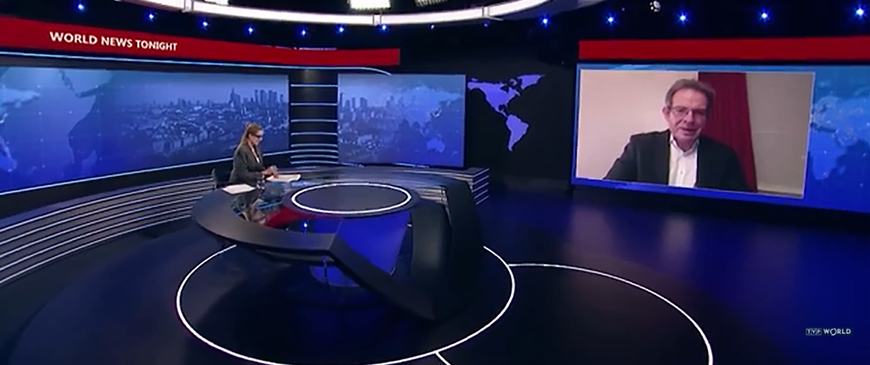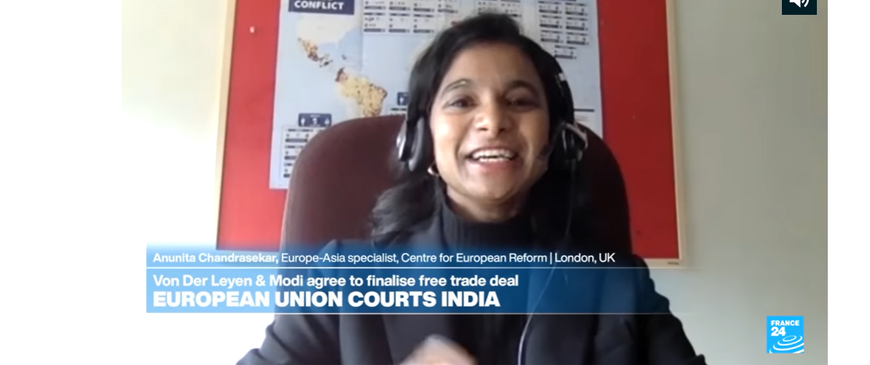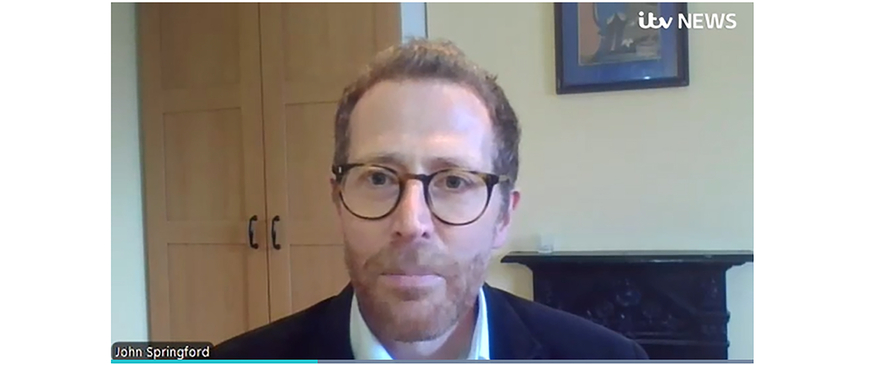Press
How a deal may save the euro but not preserve Europe
10 December 2011
Time
"It is conceivable that a different British government could seek to reverse this disastrous opt-out," says Charles Grant, director of the CER. "More likely, Britain will continue on a path towards isolation, perhaps even leaving the EU itself."
Agreed-to EU pact sets stage for quantum leap in integration
10 December 2011
Los Angeles Times
"This is not primarily a fiscal crisis. It's basically a growth crisis, and there's nothing in this agreement that makes one any more optimistic about economic growth," said Simon Tilford of the CER in London.
Summit snippets
10 December 2011
Irish Times
Brussels-based Irish think-tanker Hugo Brady's take on the Cameron strategy: "If you're not at the table you're on the menu."
EU treaty: Bashing the Brits is an old habit in France that still boosts a politician’s popularity
10 December 2011
The Telegraph
"It's not so much a row as a divorce, a passing of the ways," says Charles Grant of the CER. "It's more fundamental because the survival of the euro is existential for Sarkozy. He, like the Germans, will do everything he can to ensure its longevity and Britain is not part of that."
La política de la silla vacía de Cameron divide a los británicos
10 December 2011
El Pais
Grant opina que el resultado de la cumbre "es un desastre para Reino Unido y además amenaza la integridad del mercado único". También él apoya las intenciones de Cameron de defender los intereses de la City, pero subraya que jamás Gran Bretaña ha perdido una votación en un asunto realmente vital para su industria financiera y que, con el veto, "el Gobierno no ha conseguido ningún tipo de protección para la City".
Britain stands alone as Cameron uses veto
10 December 2011
The Times
Charles Grant, director of the CER think-tank, said that the developments would prove to be a "disaster" for the financial sector. "I can't think of a worse outcome for the City," he added. The rest of the EU would form a caucus "and tell us what they have decided".
Warum geriet Cameron so ins Abseits?
09 December 2011
Bild
"Der Premierminister hat den Euroskeptikern einen Fleischbrocken hingeworfen", sagt Simon Tilford von der Denkfabrik Centre for European Reform.
Eurozone agrees to follow the original rules
09 December 2011
New York Times
Simon Tilford of the CER, says the agreement in Brussels is superficial and fails to address the underlying problems. "It's little more than a stability pact with lipstick,” Mr Tilford said. "It's hard-wired austerity into the framework of the European Union," he added. "That's not going to do anything to solve the crisis."
In rejecting treaty, Cameron is isolated
09 December 2011
New York Times
The summit was "a disaster for the UK," Charles Grant, director of the CER said in a statement. "For more than 50 years, a fundamental principle of Britain's foreign policy has been to be present when EU bodies take decisions, so that it can influence the outcome." What should really worry London now, Mr Grant said, is that it no longer has a seat at the negotiating table.
Spain's example shows limits of EU targets
09 December 2011
The Wall Street Journal
That may spell trouble, says Simon Tilford at the CER. Businesses may be unwilling to invest while the outlook for demand continues to be weak, he says.
Immediate summit reaction
09 December 2011
CER
This week’s summit will do little to solve the fundamentals of this crisis. What has been agreed is definitely not a fiscal union, there is no agreement to close any of the institutional gaps in the eurozone, such as the lack of any real fiscal union or pan-eurozone backstop to...
Charles Grant, believes Britain "is a big loser"
09 December 2011
BBC Radio 4 Today Programme
Charles Grant, Director of the Centre for European Reform, believes Britain "is a big loser" as they have chosen to be "outside the room". Britain's influence will be "reduced" as a consequence he adds.
Londres s'éloigne de l'Union européenne
09 December 2011
Le Figaro
"Nous devenons très détachés de l'Europe", souligne Charles Grant, directeur du CER. "Nous avons choisi d'être à l'extérieur de la salle quand des politiques économiques seront discutées qui risquent de mettre en danger le marché unique.
'If you're not at the table, you're on the menu'
09 December 2011
BBC News
After British Prime Minister David Cameron's decision to veto an EU-wide treaty change, Hugo Brady of the CER said the UK was left in a precarious position. He told the BBC "If you're not at the table, you're on the menu."
New plan aims to end European debt crisis
09 December 2011
Voice of America
But Simon Tilford at the CER, says the new treaty does nothing to solve Europe's debt crisis. "The problem is that fiscal austerity will not solve this crisis, at least not alone. Fiscal austerity has in many ways become part of the crisis. Enforcing unending austerity on countries in the periphery has already made their predicaments much worse and threatens to make a bad situation in Spain and Italy even worse than it currently is." Mr Tilford says whether Britain will be weaker for staying out of the deal depends on what happens to the euro area.
Myth and reality about the euro crisis
09 December 2011
The Wall Street Journal
"The whole eurozone strategy is predicated on the assumption that fiscal ill discipline caused this crisis," said Simon Tilford at the CER. "That is a radically incomplete analysis. ...
Brussels summit 'will not resolve euro crisis'
09 December 2011
Channel 4 News
Simon Tilford, from the CER agreed, "This week's summit will do little to solve the fundamentals of this crisis."... Mr Tilford told Channel 4 News the summit should have agreed a fully-fledged fiscal union. Instead, all it had done was tinker. "This is little different from what the eurozone already had: the stability and growth pact. All it does is require states to keep their budget deficits under 3 per cent. That is not a fiscal union, which would mean a federal budget and revenue-raising powers," he said. ...
As the dust settles, a cold new Europe with Germany in charge will emerge
09 December 2011
The Guardian
"For the first time in the history of the EU, the Germans are now in charge. But they are also more isolated than before," said Charles Grant, director of the CER. "The British are certainly more marginal than before. Their influence has never been lower in my lifetime." Whether or not the summit has saved the euro remains, of course, to be seen.
EU crisis: Germany the 'unquestioned' master of Europe, says analysts
08 December 2011
The Economic Times
"For the first time in the history of the EU, Germany is the unquestioned leader, and France is number two," said Charles Grant, of the CER, citing growing inquality ever since the financial crisis struck in 2008.
France, Germany push balanced budget requirement
08 December 2011
USA Today
"I would find it surprising if they are not going to offer any more than this," said Simon Tilford at the CER. "If this is all that is on the table then the future for the euro is very, very bleak indeed."










